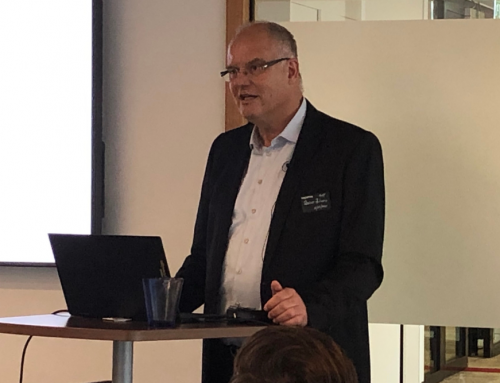How to get your ERP project right
How to avoid implementation failures? We have the best consultants in the business – they work alongside mid-size companies who are implementing ERP all the time and so they know a thing or two about how to help projects go smoothly and avoid implementation failures– they know the advice people tend to resist and the things that can go wrong if that advice is not heeded.
We’ve all been on a journey over the past few months and like it or not, while we were out of the office – enjoying the slower pace of life, we were actually being fast tracked into the digital age.
Technology that we were thinking about as – nice to have – is now essential. That ERP project which was on the back burner? It’s now top of the list.
But change worries a lot of people and we get that. You are making an investment and you need it to pay off. Get it right and the business benefits could be significant. Get it wrong and you could have unhappy employees and disgruntled customers. No one wants that.
Let’s talk about the most effective way to ensure your ERP project is a success..
Learn from the mistakes of others.
- Free up the resources you need to make your project a success – that means setting clear project goals and picking enthusiastic people who have an infectious ability to spread their good humour – it really pays off when things get tough.
- Give them the time to dedicate to the project and make sure the project team aren’t scattered over so many sites, divisions and countries that they can’t work effectively together.
- Take the time to make key decisions yourself – don’t just hand it all over to external contractors who don’t know you – it may feel good to hand it on to someone else while you do your day job, but ask yourself – are you really happy with them making key decisions on your behalf?
The things that links all this together – the common thread running through it all, is that you need strong leadership with clear ideas. ERP projects are not minor undertakings and will only succeed if the leadership team is committed to making the project a success.
Take on board the advice of people like InCloud Solutions home of expertise in SAP Business ByDesign and you will be ahead of the game!
What do our experts say?
Let’s start with Paul – an IT leader with 20 years experience and many SAP Business ByDesign implementations behind him. He reckons the biggest challenge facing any organisation is the change management they must go through.
For him it’s vital to think about how you’re going to bring your employees – the ones who are going to be users of the new system – along with you.
He told me
Too often, employees are just told – here’s the new system – get on with it.
– but they haven’t had any input at any of the stages along the way and so there’s no ‘buy-in’. We call people stake holders – but these guys don’t feel like they have a stake. No wonder some companies experience implementation failures!
Moving on to Mengya – one of our most senior Supply Chain Consultants and an absolute whizz at Business ByDesign – she thinks it’s really important that the customer keeps an open mind…particularly when there is a gap between the customer’s current processes and the processes suggested by the system.
In her experience customers often leap in at this point and ask for customization so that they can match or replicate what they’re used to. That’s comforting isn’t it? Keeping things in the realm of the known. But actually, according to Mengya, this is a really good opportunity to go back to basics and look at the process again. The new system is suggesting a certain way of doing things based on the best practice of thousands of small and medium sized companies before you.
So why is it that you’re resisting change?
It might turn out that the suggested new process is more efficient – in fact it probably is! With an open mind you can look again at the way you’ve always done things and make some process improvements!
Now to Ed – our head financial management consultant …he says
“Data is for life, not just for Christmas!”
Data is the thing that often trips people up. Ed says…
“Ensure you understand the ramifications of each field in each data object. If you get it right then it saves you lots of time in terms of automation and reducing manual errors!”
Take heed. He knows what he’s talking about!
Finally Marine – one of our financial consultants – she’s highlighted;
4 common mistakes to avoid implementation failures.
Number 1. Not dedicating the right people to the project
This ranges from having too many stakeholders to having people so high up in the organisation that they don’t have a good understanding of the day-to-day work that needs to be mapped to the system. It requires a fine balance ….on the one hand you don’t want too many people involved – they’ll all want a say and it will slow things down – but on the other hand, don’t cut back to much it causes issues later on down the line!
Number 2. Not dedicating enough time to the project
Design, Walkthrough, Training and Testing are all time-consuming processes and so they should be, says Marine, if you’re going to do a thorough job. Winging it and not taking the right amount of time before go live, puts you in a very intense and stressful situation. Avoid that pressure if you can!
Number 3. Not seeing the opportunity for change inside the company
Marine echoes Menga here when she says that an ERP implementation is a great time to take on the task of looking at processes and re-organising internally – ideally – she points out – BEFORE the implementation. It will mean far more streamlined processes AND will contribute to your project’s success.
Number 4. Data cleansing and migration
Like Ed said before, this is the all-time pitfall of every implementation. Companies always underestimate the time and effort it take to prepare data.
Start early, test the migration, don’t leave it till the last minute.
Wise words Marine!
So there you are, advice from the horses mouth on how to avoid implementation failures and make your project a success. It’s our gift to you. Our consultants live this every day – so it is worth listening to them! It’ll help you get the best from your ERP project.
The risks of not listening are: missed deadlines, blown budgets, strained relationships, stakeholder disengagement, unrealised benefits, reputational damage…
Not a list anyone wants to be a part of.
ERP project delivery is never easy, but avoiding common mistakes at the outset will help maximise your chances of success.
I hope you’ve enjoyed this brief run through – our consultants are some of the best in the business and would be happy to answer your questions. Just send them to [email protected]
This blog on avoiding implementation failures is also available in audio format as a podcast. Find it in our podcast section or listen here.










Leave A Comment